Table of Contents
Key Takeaways
- B-Vitamins and multivitamins are crucial for brain health and neurotransmitter synthesis.
- Acetylcholine’s role in ADHD can be supported with nootropics like ALCAR and CDP-Choline.
- Nootropics like Ashwagandha and Bacopa Monnieri help repair damaged neuroreceptors in ADHD.
- Noopept enhances cognition, memory, and provides neuroprotection.
- Combining specific nootropics with essential vitamins can optimize brain function for managing ADHD symptoms.
Depending on the severity of your ADHD symptoms, you may be able to use nootropics as an alternative to prescription stimulants like Adderall, Ritalin, Vyvanse and their variations.
I experimented for a year by using nootropics in place of the 20 mg of Ritalin I had been using 3-times a day for several years. And for the most part, I was successful in taming my Adult ADD symptoms.
Adult ADD Nootropic Stack
The ADD/ADHD stack I use includes:
- Mind Lab Pro
- Performance Lab® Energy – twice per day
- CDP-Choline – twice per day
- ALCAR – 750 mg 1-time per day
- L-Tyrosine – 500 mg 3-times per day
- Sulbutiamine – 400 mg twice per day
- Aniracetam – 750 mg twice per day
- Vinpocetine – 10 mg 3-times per day
- Performance Lab® Omega-3 – 3 GelCaps per day
- 1 tablespoon unrefined Coconut Oil or MCT Oil– 3-times per day
- Performance Lab® NutriGenesis Multi – 4 caps per day
During my one-year stimulant holiday, the ingredients in Mind Lab Pro along with L-Tyrosine, CDP-Choline, and ALCAR (included in Performance Lab Energy) kept my dopamine, norepinephrine, and acetylcholine levels high enough to maintain focus, motivation and improve my memory. Vinpocetine kept my brain blood flow at optimal levels. And Aniracetam and Sulbutiamine improved my mood.
But after a year I decided to go back to using 20 mg of Ritalin twice per day. Because my workload had me writing 10 hours per day. And maintaining working relationships with 2 or 3 clients at once.
By adding Ritalin back to my stack I was able to reduce the time it would take to complete a project from 3 days to 1 ½ days. Proof to me that my overall brain health couldn’t make it with nootropics alone.
The beauty of continuing to use L-Tyrosine, CDP-Choline, and ALCAR even after I started using Ritalin again was that I avoided the stimulant “crash” that is so common late afternoon when using stimulants. And I was able to reduce the original 20 mg Ritalin 3-times per day down to only twice per day.
And I have not experienced building up tolerance to Ritalin that is so common when using stimulants to treat ADD or ADHD.
Your situation may be different, or ADHD symptoms not as severe. Only you can decide if nootropics can replace ADHD meds. The stack I describe on this page is designed to be used with or without stimulant meds.
Whether you use this stack with meds or without, you’ll need to discover for yourself what dosages of each nootropic are ideal for you. Because the amounts that work for me may not work as well for you. You may need less NALT and/or ALCAR.
Experimenting is the key to success with nootropics. And knowing as much as you can about what’s going on in your brain that needs to be fixed. But after many years of recommending this ADHD nootropic stack to people just like us around the world, we know this works.
The pre-made nootropic stacks mentioned in this post include:
Prescription “Smart Drugs” vs. Nootropics for ADHD
This post is in response to many emails and questions I’ve been getting about how to treat Attention Deficit/Hyperactivity Disorder (ADHD) or Attention Deficit Disorder (ADD) with nootropics.
So if you are dealing with ADHD, hopefully this post will help. Especially if you are using stimulants like Ritalin, Adderall, Vyvanse, Focalin, or any of the other stimulant prescribed for ADD/ADHD. Or you are trying to deal with ADHD naturally by avoiding prescription stimulants.
This information can also help if you are a student or executive who uses prescription “smart drugs” like Adderall or Modafinil to boost productivity.
Here we’ll dig into the causes of ADHD or ADD in your brain. Symptoms associated with ADHD. And what you can do using nootropics, or nootropics stacked with stimulants to correct ADHD symptoms.
I’ll also include ways to potentiate the effectiveness of prescription stimulants with nootropics so they work better.
If you’ve never ‘officially’ been diagnosed with ADHD, but some of this resonates with you, you could be ADHD or ADD. And this may point you to some answers.
I’ve been ADD all my life. (ADD is ADHD without the hyperactivity). But it wasn’t until about 16 years ago, that a very wise psychiatrist identified what was going on. And why I had been struggling with focus and other problems with behavior. That no amount of self-help books on focus and management could ever correct.
Ritalin turned the lights on for me. And completely changed my life for the better. This was the seed that sprouted my interest in neuroscience and nootropics. And ultimately launching Nootropics Expert®
What is ADHD & ADD?
Attention Deficit/Hyperactivity Disorder (ADHD) or Attention Deficit Disorder (ADD) are associated with attention and executive function in your brain.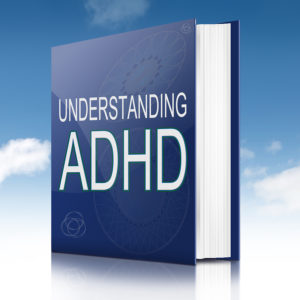
Your prefrontal cortex directs behavior, thought and feeling which are all associated with working memory. This fundamental cognitive function is what most “healthy” people take for granted, are what make up executive function.
This executive function and working memory give you the ability to:
- Regulate your attention
- Inhibit inappropriate behavior and thought
- Monitor your actions
- Plan and organize your future
If you can’t focus on the task at hand, blurt things out at inappropriate times, have little control over your emotions or actions, and can’t seem to stick to that careful set of goals you wrote down, you may be ADHD.
The Role of Norepinephrine and Dopamine in ADHD
Norepinephrine and dopamine are the primary neurotransmitters involved in ADHD because they play an essential role in attention and thinking.[i]
The “inattentive” type of ADHD is related to issues with the norepinephrine, and the “hyperactive and impulsive” type of ADHD is linked to dopamine dysfunction.
These two neurotransmitters work in concert to maintain alertness, increase focus, sustain thought, effort, and motivation. The only difference between the two is the presence of a hydroxyl group. And dopamine is the precursor to norepinephrine synthesis in your brain.[ii]
Much of what we read about ADHD focuses on dopamine’s function in your brain. But norepinephrine (NE) plays a critical role in activating your reaction to events. And how you respond to the event.[iii] NE is essential for collecting information coming in through your senses. And then modulating your brain’s response.
Any disruption in this NE system can result in ADHD, Post Traumatic Stress Disorder (PTSD), sleep disorders and more.[iv]
For example, NE working with postsynaptic α2-adrenoceptors (α2-AR) in your brain play an essential role in helping you focus and eliminate distractions when you’re paying attention to something.[v]
This is just one example of what goes wrong with ADHD brain function. My point in bringing this all up is not to overwhelm you with neuroscience.
But to make clear that simply suggesting too much or too little of a single neurotransmitter like dopamine cannot explain the complexity of ADHD.
So using a nootropic like L-Tyrosine to amp up dopamine in your brain is often not enough to take care of ADHD symptoms. Or using Adderall with someone who has a problem with alpha2-receptor binding with norepinephrine may not get much benefit.
This is the reason that experimenting with various stimulants and/or nootropics is often the only way to find a long-term solution to keeping ADHD under control. And why some respond better to a drug like Ritalin and not as well to Adderall. Or vice versa.[vi]
And recent research shows serotonin and acetylcholine are involved too. Mostly the “hyperactivity” part of ADHD which includes movement, inattention, and impulsivity.[vii]
Smart Drugs Used to Treat ADHD Symptoms
If you are truly and clinically ADHD or ADD, it is unlikely that optimizing your diet, getting plenty of sleep, using nootropics, and exercising regularly will get the symptoms of ADHD under control.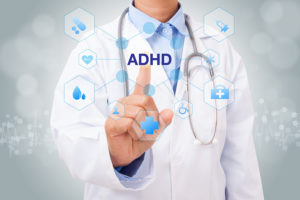
The most severe forms of ADHD often benefit from using prescription medication. Otherwise known as “smart drugs” in some circles, these meds are typically amphetamines or methylphenidate.
The amphetamine-class of ADHD prescription drugs includes Adderall (75% dextroamphetamine salts and 25% levoamphetamine salts), Dextroamphetamine, and Vyvanse (Lisdexamfetamine).
The methylphenidate-class of ADHD medications includes methylphenidate (Ritalin) and its variants like Concerta, and Focalin.
Adderall and Ritalin both work with dopamine and norepinephrine in your brain. But through different mechanisms of action.
Ritalin is a pure uptake inhibitor of dopamine and norepinephrine without any other presynaptic activity.[viii] Adderall on the other hand, has additional presynaptic activity, releasing dopamine and norepinephrine from presynaptic neurons.
The idea for the last 60 years or so, has been if we could boost dopamine and norepinephrine in the brain, ADHD symptoms would go away. As long as we’re taking the medication.
Why Prescription Attention Deficit Hyperactivity Disorder Meds Often Don’t Work
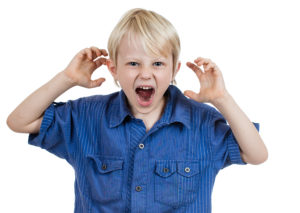 In an ideal world, taking one pill 2 or 3 times a day to treat ADHD would put your life back on track. And help you function like a ‘normal’ person.
In an ideal world, taking one pill 2 or 3 times a day to treat ADHD would put your life back on track. And help you function like a ‘normal’ person.
But real-world results often don’t work out as well as theory. For several reasons. For example, what if there’s not enough dopamine or norepinephrine in your brain in the first place? Then stimulants will not work as well as planned because they haven’t the neurotransmitters in place to work with.
You could also have problems with not enough or damaged neuroreceptors. Natural aging processes can slow blood flow or inhibit the production of neurotransmitters. A lack of acetylcholine could prevent your neurotransmitters from doing what they were designed to do.
This is where nootropics can help save the day in treating the symptoms of ADHD.
Optimizing Dopamine & Norepinephrine
 One of main culprits contributing to ADHD symptoms is a lack of dopamine (DA) and norepinephrine (NE) in your brain. Or your brain is not using the available DA and NE effectively.
One of main culprits contributing to ADHD symptoms is a lack of dopamine (DA) and norepinephrine (NE) in your brain. Or your brain is not using the available DA and NE effectively.
Stimulants like Adderall and Ritalin work to boost levels and use of these two critical neurotransmitters.
Production of dopamine and norepinephrine in your body and brain follows this metabolic pathway:
Phenylalanine → Tyrosine → L-DOPA → Dopamine → Norepinephrine
Dopamine is converted to norepinephrine by the enzyme dopamine β-monooxygenase, with O2 and ascorbic acid (Vitamin C) as cofactors.
Norepinephrine can be further converted into epinephrine by the enzyme phenylethanolamine N-methyltransferase with SAM-e as cofactor.
Nootropics to boost dopamine include:
-
-
- L-Tyrosine – L-Tyrosine is the precursor to producing dopamine in your brain. L-Tyrosine enhances working memory, executive function, creative flow states, reduces stress, improves mood and is anti-anxiety.
Suggested dosage of L-Tyrosine for ADHD is 350- 500 mg twice per day. I successfully stack 500 mg of NALT or L-Tyrosine 3-times per day. Once each time I dose with Ritalin, and a last dose mid-afternoon to prevent a stimulant crash later in the day.
- Mucuna Pruriens (L-Dopa) – Mucuna works as an antioxidant and heavy metal chelator, improves memory & cognition, reduces depression and boosts libido. L-Dopa is also the direct precursor to dopamine. Suggested dosage of Mucuna Pruriens is 250 – 500 mg per day.
But if you’re just starting out with nootropics, I highly recommend using L-Tyrosine or NALT instead of Mucuna Pruriens. Because Mucuna can be more difficult to dose since it directly stimulates the production of dopamine. L-Tyrosine and NALT are more ‘forgiving’ when it comes to dosage.
- Phosphatidylserine (PS) – PS can help improve alertness, attention, cognition, memory, recall and mood, and lower anxiety. All issues associated with ADHD. Phosphatidylserine is a phospholipid component of the membrane encasing every one of your brain cells. PS helps maintain the fluidity and permeability of brain cells. Improving the flow of dopamine and acetylcholine. Suggested dosage of PS is 1—mg 3-times per day.
- Pine Bark Extract – Pine Bark extract helps prevent decreases in dopamine and norepinephrine. And the glutathione (GSH) and GSH-disulphide reductase (GSSG-R) ratio. Neurotransmitter problems which contribute to hyperactivity in ADHD. Pine Bark extract also helps boost blood flow in the brain by increasing nitric oxide which helps dilate blood vessels. And it helps reduce oxidative stress, membrane damage, DNA damage, inflammation, and glycation.
I’ve found one of the most potent forms of Pine Bark extract comes in both Mind Lab Pro® and Performance Lab® Mind.
- L-Tyrosine – L-Tyrosine is the precursor to producing dopamine in your brain. L-Tyrosine enhances working memory, executive function, creative flow states, reduces stress, improves mood and is anti-anxiety.
- N-Acetyl L-Cysteine (NAC) – NAC is an amino acid that regulates the amount of glutamate and dopamine in your brain. NAC can be used to treat the symptoms of ADHD. And even helps eliminate some of the negative side effects associated with prescription ADHD stimulants. Suggested dosage of NAC is up to 600 mg 3-times per day.
A word of caution here in boosting the catecholamines dopamine and norepinephrine. Too much of either is not a good thing. In fact, excess levels of either will throw your neurotransmitter levels out of balance. And can cause anxiety, insomnia and panic attacks.
Taming Hyperactivity with Nootropic Supplements
The “H” in ADHD stands for hyperactivity. Boosting levels of dopamine and norepinephrine can help balance out hyperactivity. And help calm and focus your mind. But often simply boosting or balancing these neurotransmitters is not enough.
Recent studies show that serotonin and dopamine interaction also play a role in ADHD.[ix] Serotonin is involved in the uptake, synthesis and breakdown of dopamine in your brain. Problems with serotonin seem to contribute to behavior and impulse control.
Much more research needs to be done in this area of ADHD. But we can help control and balance serotonin with nootropics.
- 5-HTP – This amino acid is synthesized from the amino acid tryptophan. And 5-HTP is the immediate precursor to serotonin in your brain.5-HTP can help relieve anxiety and depression, fibromyalgia, insomnia, migraines and likely the hyperactivity, depression and anxiety associated with ADHD. Suggested dosage of 5-HTP is 50 mg up to 3-times per day. Please see my dosage notes and warnings before you try supplementing with 5-HTP.
-
-
- Ginseng – Ginseng helps calm anxiety, and boost attention, concentration and memory. Ginseng provides neuro-protective effects on the dopaminergic-pathway which can help with ADHD. And ginseng is a serotonin and norepinephrine reuptake inhibitor (SNRI).Suggested dosage of Ginseng is 100 – 400 mg per day.
-
- L-Theanine – L-Theanine commonly found in green tea helps boost alpha and theta brain waves, is anti-anxiety, boosts cognition and memory and reduces insomnia. L-Theanine also helps boost GABA, serotonin and dopamine levels in your brain. Suggested dosage of L-Theanine is 150 mg 2 – 3-times per day.
-
- Rhodiola Rosea – Rhodiola Rosea helps improve alertness, energy, memory and mood, is anti-anxiety and antidepressant, reduces fatigue and boosts memory and concentration. Rhodiola influences serotonin and norepinephrine levels in your brain. Suggested dosage of Rhodiola Rosea extract is 150 – 200 mg per day.
-
- Saffron – Saffron acts as a dopamine and norepinephrine reuptake inhibitor. Similar to how Ritalin works. A randomized double-blind study was conducted with 54 children 6-17 years old who were given 20 – 30 mg methylphenidate or 20 – 30 mg Saffron per day for 6 weeks. At the end of the study researchers concluded, “Short-term therapy with a saffron capsule showed the same efficacy compared with methylphenidate.” Suggested dosage of Saffron is 30 mg per day.
-
- Vitamin B6 (Pyridoxine) – Vitamin B6 helps your brain make serotonin, norepinephrine and melatonin. Suggested dosage of B6 is up to 100 mg per day.
-
- Vitamin B9 (Folate) – Folate (NOT folic acid) as a nootropic helps your brain make dopamine, epinephrine, norepinephrine and serotonin. Suggested dosage of Folate is 400 mcg per day.
-
- Vitamin B12 (methylcobalamin) – is a cofactor in the synthesis of neurotransmitters acetylcholine, dopamine, GABA, norepinephrine, and serotonin. Suggest dosage of B12 is 100 mcg per day.
B-Vitamins are Critical in Controlling ADHD
Take note that several of the B-Vitamin group are involved in the production of the neurotransmitters involved in ADHD. I recommend adding a good B-Vitamin Complex that include methylfolate (not folic acid) and methylcobalamin (not cyanocobalamin) to your stack. Both in a pure nootropic stack as well as when using any of the ADHD prescription stimulants.
But it’s not only the B-Vitamins that are required for a healthy, fully functioning brain. We also need each of the 13 vitamins and 13 minerals needed for everything from blood flow, neurotransmitter synthesis and release, brain signaling, and neuroprotection.
I’ve found the easiest way to make sure my ADD brain gets all the vitamins and minerals it needs every day is to also use a multivitamin/mineral supplement.
The best I’ve found so far is the multivitamin called Performance Lab® NutriGenesis Multi. It’s better than the “raw-food” multi I was using for years. And makes a difference I can actually feel.
But please note that this multi is in addition to a B-Vitamin Complex because the ADHD brain needs more of these critical nutrients than what is normally in any good multivitamin.
The Role of Acetylcholine in ADHD
Researchers at Vanderbilt University Medical Center discovered that there are three types of ADHD.
We’ve already covered the “inattentive” type that is related to issues with the norepinephrine transporter gene. And the link to the dopamine transporter gene in the “hyperactive and impulsive” type.
But the research team now report that a variation in the choline transporter gene is associated with a “combined” type of ADHD. Symptoms include both inattention and hyperactivity/impulsivity.
Choline is required to synthesize acetylcholine (ACh) which is needed for memory, motor-control, focus, learning, concentration, and cognition.
If you have the “combined” type of ADHD it’s likely due to a mutation in this choline transporter gene variation.
Nootropics to boost acetylcholine include:
- ALCAR (Acetyl-L-Carnitine) – ALCAR donates am acetyl group in the presence of Coenzyme-A for the synthesis of acetylcholine. And it’s also a shuttle transport for fatty acids through brain cell membranes. It shuttles fatty acids into mitochondria for ATP synthesis, and shuttles toxic byproducts out.
Research from the Linus Pauling Institute shows ALCAR will restore mitochondrial function, replenish age-related changes to mitochondrial structure, and helps replenish acetylcholine levels to your brain and body.
And other studies show that ALCAR stimulates nerve growth factor. Helping support survival and growth of neurons. Which is particularly important for the ADHD brain and especially when using prescription stimulants that may be tough on neurons.
- Alpha Lipoic Acid (R-LA) – Alpha Lipoic Acid increases acetylcholine production by activation of choline acetyltransferase and increases glucose uptake. This process supplies more Acetyl-CoA for the production of acetylcholine.
Alpha Lipoic Acid enhances insulin-stimulated glucose transport and metabolism for better brain cell performance. And R-Lipoic Acid provides strong antioxidant support because it helps regenerate and recycle existing antioxidants in your brain including Vitamins C & E, glutathione, and CoQ10.
I’ve since switched the ALCAR supplement in my ADD stack to Performance Lab® Energy because this pre-formulated energy stack contains my preferred dose of ALCAR. But note that I also take another 500 mg of ALCAR with L-Tyrosine late afternoon to prevent a stimulant crash.
Performance Lab® Energy also contains Alpha Lipoic Acid and ALCAR which helps my ADD brain produce acetylcholine.
- CDP-Choline (Citicoline) – Citicoline helps synthesize phosphatidylcholine (PC), a major phospholipid found in brain cell membranes. And provides choline for the synthesis of acetylcholine while providing antioxidant activity.
The CDP-Choline (Citicoline) in my ADD stack is supplied by Mind Lab Pro® which is the base of my nootropic stack.
But a suitable alternative to MLP is Performance Lab® Mind which contains the branded form of citicoline called Cognizin®.
Performance Lab® Mind and Mind Lab Pro® also contain L-Tyrosine, Phosphatidylserine (PS), and Maritime Pine Bark extract.
Repairing Neuroreceptors Needed to Control ADHD
One of the issues with neurotransmitters and ADHD are damaged or non-existent receptors. Dopamine, norepinephrine and serotonin have less receptors to bind to for cognition and mood control.
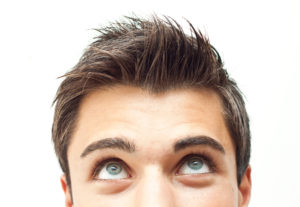
Once again, nootropics come to the rescue in helping control ADHD. You can add one of these nootropics to your stack to help boost neuron and receptor health.
- Ashwagandha – This adaptogen, Ashwagandha helps reduce anxiety and depression. And helps reconstruct axons, dendrites and synapses involved in neurotransmitter signaling in your brain. Suggested dosage of Ashwagandha extract is 250 – 500 mg per day.
-
- Bacopa Monnieri – Bacopa helps boost memory and cognition, improves mood, and reduces stress. This adaptogen affects brain levels of acetylcholine needed for neurotransmitter signaling. And the two active components of Bacopa Monnieri called bacosides A and B not only improves signaling of electrical impulses between neurons in your brain. Bacosides also help rebuild damaged neurons. Suggested dosage of Bacopa is up to 450 mg per day.
-
- Lion’s Mane – Lion’s Mane Mushroom is known for stimulating Nerve Growth Factor, improving cognition and memory, and relieving depression. Lion’s Mane stimulates the repair and creation of neurons in your brain. Neurons needed for dopamine and norepinephrine to control ADHD. Suggested dosage of Lion’s Mane Mushroom starts at 500 mg per day. Note: that there’s an effective 500 mg dose of Lion’s Mane full-spectrum fruiting body in each dose of Mind Lab Pro®
-
- Noopept – Noopept helps boost cognition, memory, learning, perception, logical thinking and mood. Noopept increases Nerve Growth Factor, and Brain-Derived Neurotrophic Factor (BDNF) critical for neuroplasticity and Long-Term Potentiation critical for long-term memory. Noopept also prevents the release of excess glutamate in your brain. Providing potent neuroprotection for neurons and reducing damage. Suggested dosage of Noopept is 10 – 30 mg per day.
Please note that I haven’t linked through to supporting clinical studies for each of the nootropics I listed above. But you can click through to my full review of each nootropic for extensive research supporting each supplement.
Nootropics for Kids
ADHD and ADD is most often diagnosed in children. The latest statistics (2011) from the CDC in the USA shows about 11% of children 4 – 17 years of age (6.4 million) have been diagnosed ADHD.[x] And that’s just for the USA.

Although ADHD is usually first diagnosed in children, it often lasts into adulthood. I sometime wonder how my life would have been different if I had been declared ADD when I was a kid.
But it wasn’t until the late 1960’s that the American Psychiatric Association formally recognized ADHD as a mental health disorder. I wasn’t declared Adult ADD until much later.
The thing is many parents are wary about putting their children on powerful, prescription ADHD meds. Kids’ brains continue to develop until your early 20’s. So is it a problem messing with brain chemistry at such a young age? Only time will tell and if the benefits outweigh any potential risk.
Hence the reason why parents are looking for ‘natural’ alternatives like nootropics to treat ADHD in children. But are nootropic supplements any safer than prescription stimulants?
Common sense tells me that using L-Tyrosine could be safer than Ritalin for boosting dopamine. And Rhodiola Rosea could be safer than stimulants or antidepressants for taming hyperactivity.
But many children with ADHD, natural supplements may not be enough. I’m not a doctor, and don’t even play one on TV. I’m an ordinary biohacker who has learned as much as I can to help myself. And fix my own cognitive performance issues. Including Adult ADD.
So I highly recommend you find and work with an open-minded psychiatrist with your child. You may be pleasantly surprised to find you may be able to reduce or eliminate prescription ADHD meds altogether to enhance cognitive functions. And maybe not. But the long-term health of your child could be worth the time investment to find out.
In Summary
I’ve been wanting to write this post since I started Nootropics Expert®. If you are ADHD or ADD, I hope you found this useful. And I’d appreciate your feedback, and share your experience with treating ADHD with nootropics in the comments section of this post below.
Please share this post with anyone you think would benefit. Including discussions about nootropics for ADHD on reddit or Longecity.
One final note. Neurotransmitter balance is key to taming ADHD. I strongly caution you to take it slow if you’re just starting out with nootropics. Carefully read each of the extended articles in the List of Nootropics you are considering trying.
You need to be careful about side effects, prescription drug interactions, dosages and how your body reacts to each supplement to ensure healthy brain function.
But I’m confident that with careful planning and a long-term commitment, your cognitive enhancement will be just as successful as I have been in living and thriving with my Adult ADD.


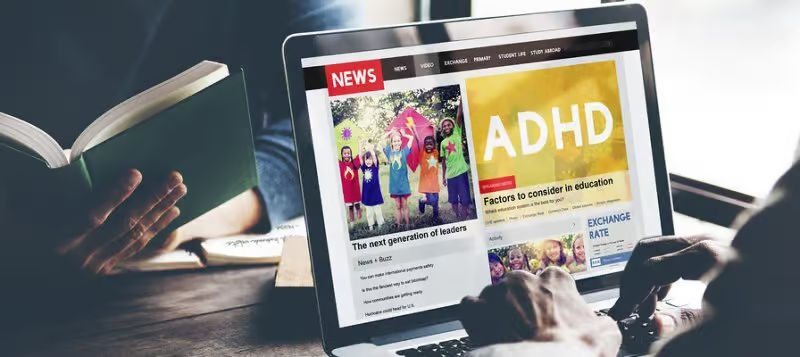





Join The Discussion - 863 comments
Barış Sonyurek
July 11, 2018
Hello David I hope you are doing ok. I stopped immediately taking sertralin after talking to you. And after 2 weeks i also stopped ritalin because it gave me a bad chest pain. Doctor prescribed me Modafinil today. Does the stack outlined here work with modafinil? By the way only cholin supply i could find in Turkey is a mixture with inositol and methionin. Unfortunately the mixture mostly composed of those two. I have to take 2 pills to grt enough cholin. And i get 1,2 gr of inositol and methionine. I know inositol is good for anxiety with this amount but what about methionine? Does it any have any advers effects you know if i use this mixture for my stack. Stay healthy. Thank you.
Barış Sonyurek
July 11, 2018
And you know what here NAC is sold as a drug that is used to destroy the mucus in body. İt is in efervesant forms or in powder form. İt is not found as a supplement. I was able find out that after a thorough search but i finally got my NAC.
David Tomen
July 11, 2018
Thanks Barış. Good information for our readers in Turkey.
David Tomen
July 11, 2018
This stack should work well with Modafinil. I’m a little surprised that you can’t find a choline supplement in Turkey. Does this include things like “choline bitartrate” and “choline citrate”? Inositol and methionine are both beneficial for brain and overall health.
You can raise choline levels by eating more eggs. Not sure if it’s enough. If you get a headache using this stack it means your brain needs more choline.
Barış Sonyurek
July 11, 2018
It is cholin bitartrate. I will continue to search for a better supply.
David Tomen
July 11, 2018
Choline bitartrate will work but you just need to take much more of it.
barış sonyürek
July 26, 2018
Dear David i hope you are fine. I am continiously experimenting with my stack. Modafinil is great it really keeps me awake. I can listen to people without my brain gets foggy and distracted. But like all drugs it is said that some cannot use it everyday. My problem is that actually i need to be alert all the time. I am not like a student or working women just expected to perform at school or office. I need to be alert and in a good mental condition especially at home in the evening. Because this has become a problem with my marriage. I need something continius. Next week i will tell the doctor. And if you have any suggestion i apreciate. Besides i have this chest pain. It’s been several weeks. Limiting caffeine worked a little bit. And I am trying to eliminate each thing in my stack by removing one at a time. L-tyrosine , alcar or methionin-inositol-cholin mix. Do you have an idea which nootropic may cause chest pain? Finally last question. I think nootropil makes me sleepy. Even with modafinil. İs it possible? Maybe nootropil is not good for me?
Have a good day and stay healthy.
David Tomen
July 26, 2018
You should be able to successfully use Modafinil or other prescription stimulant with the stack described in this post.
This nootropic stack was designed to support daily use of a stimulant. Or for someone who chooses to treat ADHD without the use of prescription drugs.
The only thing I can think of that could cause chest pain is L-Tyrosine if you are also using a MAOI, or if your dopamine is already too high. This puts strain on your system which can result in a hypertensive crisis like chest pain or a heart attack.
Imran Djibrine Mainassara
July 3, 2018
Will talking all those supplements at once per day not cause anything? Also it doesn’t matter which supplements but they all function fine together when consumed?
David Tomen
July 3, 2018
Yes this stack was made to work in synergy for best effect.
Imran Djibrine Mainassara
July 3, 2018
Hello David,
I can’t tell you how much thankful I am for your article and all the work you’ve put into it, It’s really amazing. I am dealing with a very bad “zoning out” problem which has affected every part of my life for several years now. I am 19, and I knew that I could no longer live like this if I wish to live the life I want to. I am certain of having ADD based on my researches and I would do anything to get rid of it. This zoning out problem caused me a great lack of focus and concentration in whatever activity I am doing such as communication, reading, or anything that requires focus and cognitive thinking(for life in general). I always feel tired and unmotivated to do things and I overthink everything which therefore greatly affects my ability to recall, memorize and live life based on learned experiences. I failed several of my college courses, cut off any real friendship and therefore am living inside my own head repeating useless overthinking. My brain becomes foggy whenever I am talking with someone and I can’t think of words to say. I haven’t got diagnosed of ADD yet which I’m pretty sure I have but I am really hoping to make an impact on my brain with your suggested nootropics supplements before talking to my doctor. I will try your stack and get back to you but I’d love any suggestions of more supplements to add for concentration and better memory function.
Ps: Also I am currently talking two 500mg of Levetiracetam per day as a seizure(experienced twice) prevention drug. I already ordered a MindLabPro stack and looking forward to add more supplements but I’m also wondering if they will have an effect with my seizure medication.
David Tomen
July 3, 2018
Imran, there’s nothing in Mind Lab Pro that would contribute to seizures that I can think of. Or anything else in this ADHD stack.
Not sure what country you’re in but CBD Oil has been shown effective with seizure disorders.
Pay particular attention to vitamins, minerals and fat like coconut oil. Most people don’t realize how critical the simplest things are to alleviate brain fog and cognition. It’s the very basics of good cerebral health.
It will take a few weeks of consistent daily use of these supplements. So please let us know if and how this stack works for you.
Angela
June 16, 2018
Hi David,
You’re experience and information is extremely valuable. Thank-you!!
It’s been awhile since you wrote this article. Have you changed or improve your stack since writing the original post?
Thanks,
Angela
David Tomen
June 17, 2018
Angela, I’m basically using the same stack described in this post. I have made a couple of tweaks since and will be update the post this week. Small tweaks but worth doing so stay tuned …
Angela
June 21, 2018
Thank you!!
Have you experienced any tolerance to Aniracetam or Sulbutiamine? I’ve read that some people do especially to sulbutiamine.
Angela
David Tomen
June 22, 2018
Angela, I personally have not experienced tolerance with either Aniracetam or Sulbutiamine. But I know others have. You can avoid tolerance by taking a two day break every week if it’s a concern.
baris sonyurek
June 5, 2018
Dear David thanks for amazing work. My problem is that I always forget something although I take notes and my brain is foggy. I hear, I think but I can’t do what I should do somehow, thoughts just flowing and going. I am always like that:… ” Did we talk about it? Really, hmm I don’t remember. Did we decide to do it that way? Ohh. I remember what we’ve decided before about that. Soryy, hmmm”… This ruins my marriage and my husband never understand my situation and I cannot explain. How can I? I cannot find the right words to describe what going on with me! Reading your articles I just try to understand the mechanism in my brain. I started with 36 mg concerta and the only difference I felt was ‘Hey! I can listen to people talking to me without distruction!’ and that was all. Then we moved to 54 gr. of concerta and I even lost that little difference with 36 gr. Nothing happened. Doctor said that there is nothing they can do more for me. He did not try any other medicaton or therapy. What deficiency could be in my brain ? I will try your stack described here. Any additional suggestion? Thank you very much again. Your answer is important to me. Because nobody understands me.
David Tomen
June 5, 2018
Baris, use the stack I outline in this post for 2 -3 weeks and see if there is any improvement. Your brain needs the dopamine and acetylcholine this stack provides. Also do a search of Nootropics Expert and find supplements that support mitochondria in your cells. PQQ and CoQ10 are likely your best choices. Neurotransmitter and mitochondrial support should make a noticeable difference in what you are dealing with.
baris sonyurek
June 5, 2018
Thank you very much I will try and give feed back!
baris sonyurek
June 25, 2018
Dear David two weeks ago after we speak here I stopped Concerta and Selectra and started with 1600 mg. Piracetam (we don’t have Aniracetam in Turkey), 500 mg. Alcar, 500 mg. l- Tyrosine (again we don’t have acetyl l-tyrosine here), Rhodiola and a natural B complex. And Ritalin 10 mg. I tried 15-20 mg 2-3 days after starting Ritalin but i am not sure it is good for me. It’s not like turning of the lights actually for me. Also I have some pain in the eye like it did with concerta. Maybe I should try Straterra next month when see my doctor. By the way today I cut off Rhodiola and go back to Sertralin (Selectra). I felt I need to take Selectra again because I can’t cope with what I have been through nowadays especially at home. Which nootropics I can use instead of selectra? Maybe Straterra will do the work? And I plan to go 2400 mg. with piracetam. Next mont I will also add Q10 I hope. Unfortunately it is not easy to find good supplements with a good price here. I am still searching for a cholin supply. Thank you in advance.
Barış
David Tomen
June 25, 2018
Baris, Concerta and Ritalin each work on “dopamine” in the brain. Strattera affects “norepinephrine”. So if the first two (dopamine agonists) do not work as well as you like, then you may want to try either Strattera or Adderal (norepinephrine agonists).
The thing is that SSRIs like Sertralin boosts serotonin. Which depresses dopamine and contributes to ADHD symptoms. This can be counteracted by boosting dopamine even more by using L-Tyrosine and/or Mucuna Pruriens. But please carefully review the side effects for Sertralin and then decide if it’s worth the risk: https://en.wikipedia.org/wiki/Sertraline
Any of the racetams, including Piracetam will only work if taken with a choline supplement. If you are having a difficult time finding Alpha GPC or CDP-Choline (Citicoline) then see if you can find something like choline bitartrate or choline citrate. You just need to use a lot more.
Strattera (norepinephrine) is not a substitute for a SSRI like Sertralin (serotonin). Please use something like Wikipedia and research the “pharmacology” or “mechanism of action” of each of these drugs until you understand how they work. And what the difference is between them.
If Rhodiola didn’t work for you then try something else. You can try Bacopa Monnieri, Ginkgo Biloba, or St. John’s wort. This last one is a very, very potent natural SSRI. But please read the review and dosage instructions for St. John’s wort. And DO NOT combine it with a prescription SSRI or MAOI.
fishan
May 11, 2018
Do this drugs have any side effect in long term???
David Tomen
May 11, 2018
Each nootropic supplement discussed in this post has live links to a full review of each. Which includes side effects.
David Tomen
June 5, 2018
These are dietary supplements and NOT pharmaceutical drugs. See each review for the 85+ nootropics reviewed here on Nootropics Expert for side effects.
Alexis
May 2, 2018
Thank you for sharing your experience and knowledge. I have 2 boys, ages 11 and 6 both diagnosed with ADHD with only the younger one with the hyperactive component. I also have an 8 year old daughter who has high functioning ASD and although hasn’t been formally diagnosed, I suspect also has ADHD. As I’ve researched this topic more it’s become clear to me that I likely have ADHD as well. Although suggeseted by the doctors that have diagnosed them, I am weary of giving them prescription meds and have been on a research mission to come up with a cocktail of supplements to treat them but am overwhelmed by the info. Are you aware of any sources specific to children or do you have any advice yourself? On my current list of supplements for this “cocktail” are omega 3s, zinc, iron, magnesium, vitamin c, probiotics, B6 and B12, GABA, Rhodiola Rosea, L Dopa, L-theamine and phosohatidylserine and possibly CBD–in what doses and forms that I don’t know…
Totally confused and overwhelmed and equally desperate to help these kiddos out.
David Tomen
May 2, 2018
Alexis, first I’m not a doctor and don’t even play one on TV. So please keep that in mind. I personally do not have specialized knowledge with children and ADHD. But someone who does and whom I respect is Dr. Daniel Amen. Please use the resources on his site for more on the different types of ADHD.
One thing I’ve learned is depending on the severity of ADD and ADHD there is only so much you can do with natural nootropic supplements. For someone who is truly clinically ADHD you may need a prescription stimulant. And 10 years worth of research for myself shows that Ritalin (methylphenidate) is the safest of all of them for long-term use. And very effective.
You are on the right track with the stack you are currently using. But keep in mind that dopamine works in concert with serotonin. It is easily possible to throw the balance in the direction of dopamine using supplements like L-DOPA. These must be in balance and you can help by using L-Tryptophan: https://nootropicsexpert.com/tryptophan/.
Pine Bark Extract is helpful for ADHD: https://nootropicsexpert.com/pine-bark-extract-pycnogenol/.
I think you can help reduce your overwhelm by learning how stimulants like methylphenidate work in the brain. Wikipedia is a good resource for this type of research. Once you understand how something like Ritalin works you’ll have a clearer idea on what you are dealing with here. And the types of supplements that can help.
Only other thing I’d suggest right now is a high quality multivitamin/mineral supplement that uses nature-identical nutrients and not synthetics. See my posts on vitamins and minerals under the “Blog” tab. And instead of just B6 and B12, try a B-Complex vitamin like Life Extension’s BioActive Complete B-Complex.
andrea
April 22, 2018
1) For what reason the effect can’t be recreated?
2) I have read on reddit to add also these can boost ritalin effect:
– L-tyrosine
– Magnesium, Calcium and Zinc
what do you think about?
3) it will be userful use also the Lion’s Mane Mushroom or it will be to much things in a time?
4) and another question 🙂
do you thing it’s a good idea take 20mg only in the morning?
thank you a lot
David Tomen
April 22, 2018
Andrea, you get accustomed to things very quickly. It’s like the “new normal”. So what had a “wow” factor before is now commonplace. You get used to working and performing at a higher level.
What you read on reddit is correct. L-Tyrosine is a precursor to dopamine. And Ritalin requires dopamine to work. The synthesis of dopamine also requires a host of vitamins and minerals in very tiny amounts. But if any one of them is missing then dopamine will not be created. And calcium channels are required for brain cell signaling.
Lion’s Mane is a great addition because it helps repair damage to receptors. Including dopamine receptors that may have been damaged from the use of Ritalin.